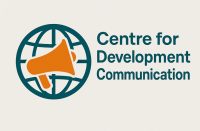Children in Abuja have continued to learn under terrible and harsh conditions despite the sum of N278 billion approved Federal Capital Territory 2020 budget.
The FCT had in its 2020 appropriation, set aside the sum of N160, 133,401,417 for capital expenditure. An amount Mr. Muhammad Bello, the FCT Minister said will be utilized on education, health, and other basic infrastructures.
Good as that sounds, children of the Alipi community in Gwagwalada Area Council of Abuja, continue to learn under a terrible and harsh condition with the money set for the capital expenditure not having any impact on the community education.
Tracka, a public accountability organization that exposed the terrible nature of the LEA Primary School Alipi Gwagwalada, has since appealed to the FCT authority to help provide chairs and decent classrooms for the children to learn in a conducive environment.
This is even as Tracka said it found pupils in the school sitting on a bare floor in an uncompleted building while some under a tree.

Mr. Ibrahim, one of the teachers in Gwagwalada, while speaking to the Media Advocacy West Africa Foundation (MAWA-Foundation), said the Alipi community is not an exception, pointing out that many schools in Gwagwalada and Kuje are without classrooms and teachers with children learning under terrible condition.
Ibrahim said in some of the communities like Kanzo in the Kuje area council, parents and residents often put monies together to build public schools and hire teachers that are been paid through community contributions.
Alice, one of the teachers in a primary school in Kuje who did not want her second name and the school she teaches known, told MAWA Foundation that FCT does not take education seriously, adding that across communities in Abuja, only children of the poor go to public schools while parents who can afford quality education sent their kids to private schools.
Abuja is not the only offender, across the Nigerian states; public schools have since collapsed with private schools being alternatives with the poor who cannot afford good education allowed to be educated and trained in public schools that offer very poor education.
